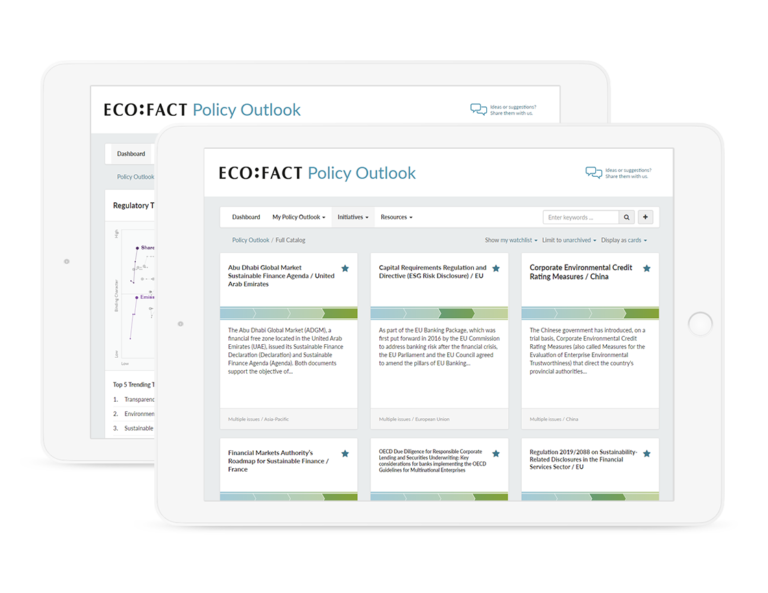Risk Management: Integrating Environmental and Social Issues
Civil society and regulators increasingly perceive regulating the financial sector as a more efficient way to tackle broader environmental and social (E&S) issues, such as climate change, rather than taking regulatory action targeting sectors of the real economy. Consequently, financial regulators around the world are requiring financial institutions to integrate E&S issues in their risk management systems.
Based on Policy Outlook’s broad and in-depth overview of regulatory corporate responsibility and sustainable finance initiatives addressing the financial sector, we have prepared an overview of how different jurisdictions are currently approaching the integration of E&S issues in financial institution’s risk management systems.
Our assessment is based on a selection of 16 key regulatory frameworks in the domain of hard law in the EU and seven other countries, focusing on three main areas: disclosures, governance, and implementation roadmaps.
Our main findings:
- Financial regulators across the globe rely heavily on public disclosure.
- European regulations increasingly stipulate a link between remuneration policies and an adequate risk management system that takes E&S issues into account.
- Latin American regulators are encouraging the establishment of board-level committees responsible for E&S issues and risk management.
- Emerging market regulators expect financial institutions to adopt implementation roadmaps explaining how E&S issues will be integrated into risk management processes.
- We have identified as an emerging trend the appointment of senior management or C-level individuals responsible for overseeing E&S issues and risk management processes.
For an in-depth overview of each of the analyzed regulations, please access the Policy Outlook.
 All posts
All posts Contact
Contact



